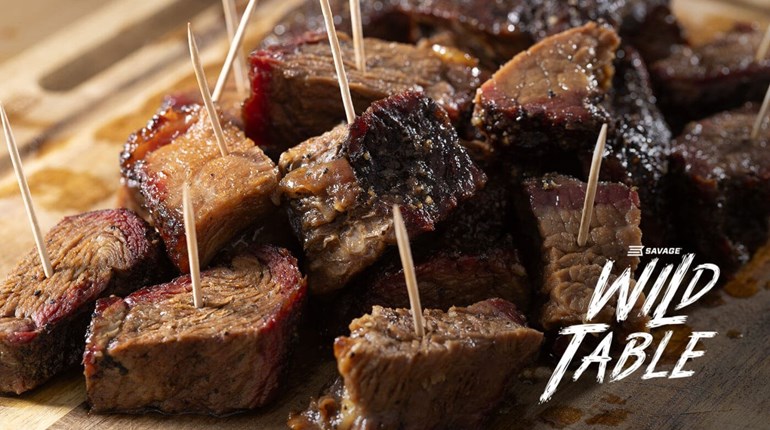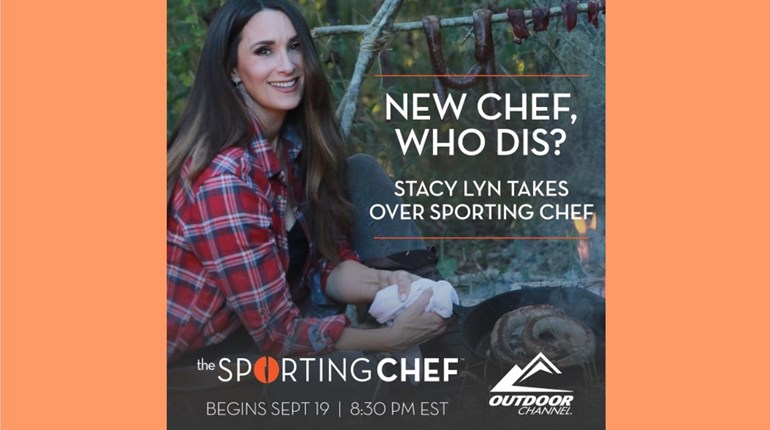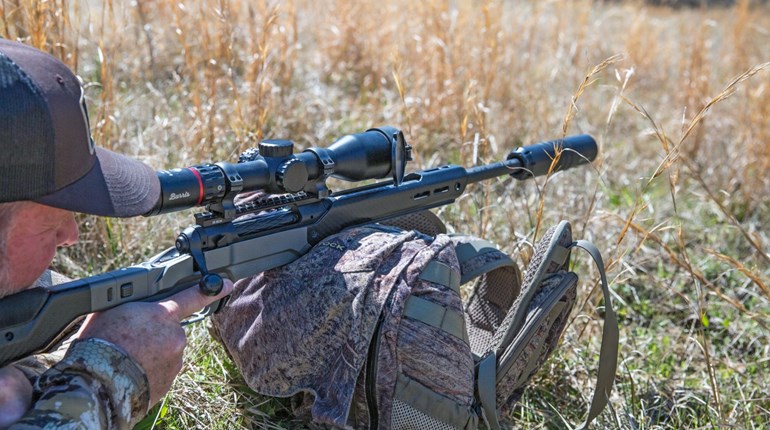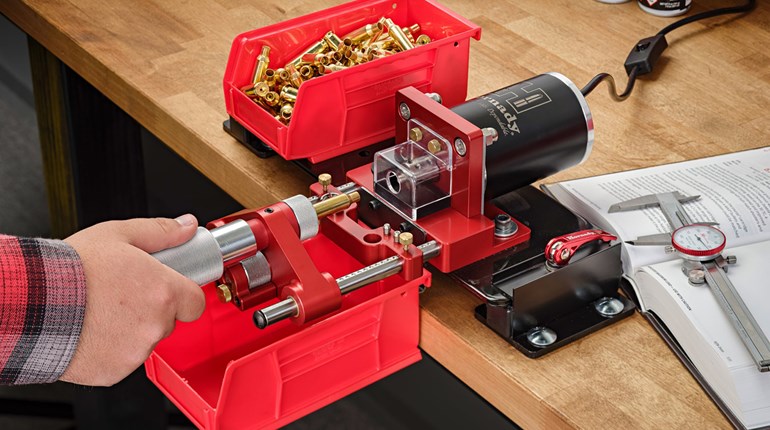
 Scott and Tiffany Haugen's wild-game cooking seminar at the NRA Annual Meetings in Indianapolis began with them slicing the silver skin off meat, while the pair talked about some of the more important aspects of cooking wild game.
Scott and Tiffany Haugen's wild-game cooking seminar at the NRA Annual Meetings in Indianapolis began with them slicing the silver skin off meat, while the pair talked about some of the more important aspects of cooking wild game.
"Taste, texture and quality starts in the field," said Scott, suggesting cooks get the meat off the animal as soon as possible to cool or freeze, depending on the weather. The Haugens typically skin the animal and remove the meat before gutting, because meat—and the flavor—is their number one priority.
At one point, the Haugens apologized to a professional butcher in attendance, acknowledging they are not certified butchers.
 "Looks don't matter," Scott said, meaning if you know the basic parts of the animal and move with the silver skin you will get the result you want, even if it's not pretty.
"Looks don't matter," Scott said, meaning if you know the basic parts of the animal and move with the silver skin you will get the result you want, even if it's not pretty.
Often times you'll hear about a hunter who left an animal to die overnight, or decided it was too late to pack out and made the choice to come back in the morning. Scott and Tiffany made it abundantly clear that choice is not one they would choose. They said at the very least to get the guts out because leaving the meat on the animal overnight is going to change the taste.
When it comes to fat, it depends upon the type of animal as to whether the fat should be removed during field dressing. For example, if it's a bear or another animal that has a lot of fat, it might not cool as easily. The Haugens suggested removing the fat to render it for later use in the kitchen.
When it comes to aging meat, the Haugens suggested that had never crossed my mind: They recommended aging meat even after it's been frozen if you are in a place where you cannot immediately age it. To do this, simply defrost the frozen meat in your fridge, then put the meat on a rack or plate where you are going to age it for two to three days or weeks depending on preference. Often this creates a film, which can then be simply filleted off.
For tougher wild-game meats and cuts, such as a neck roast, most chefs go to the slow-cooker or crock pot. In this method, the Haugens add coconut milk because, as they say, "coconut milk makes any game meat taste good."
The Haugens have produced many field-to-table related DVDs, cookbooks and articles. For more information, check out their Facebook page.



































